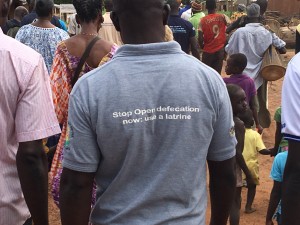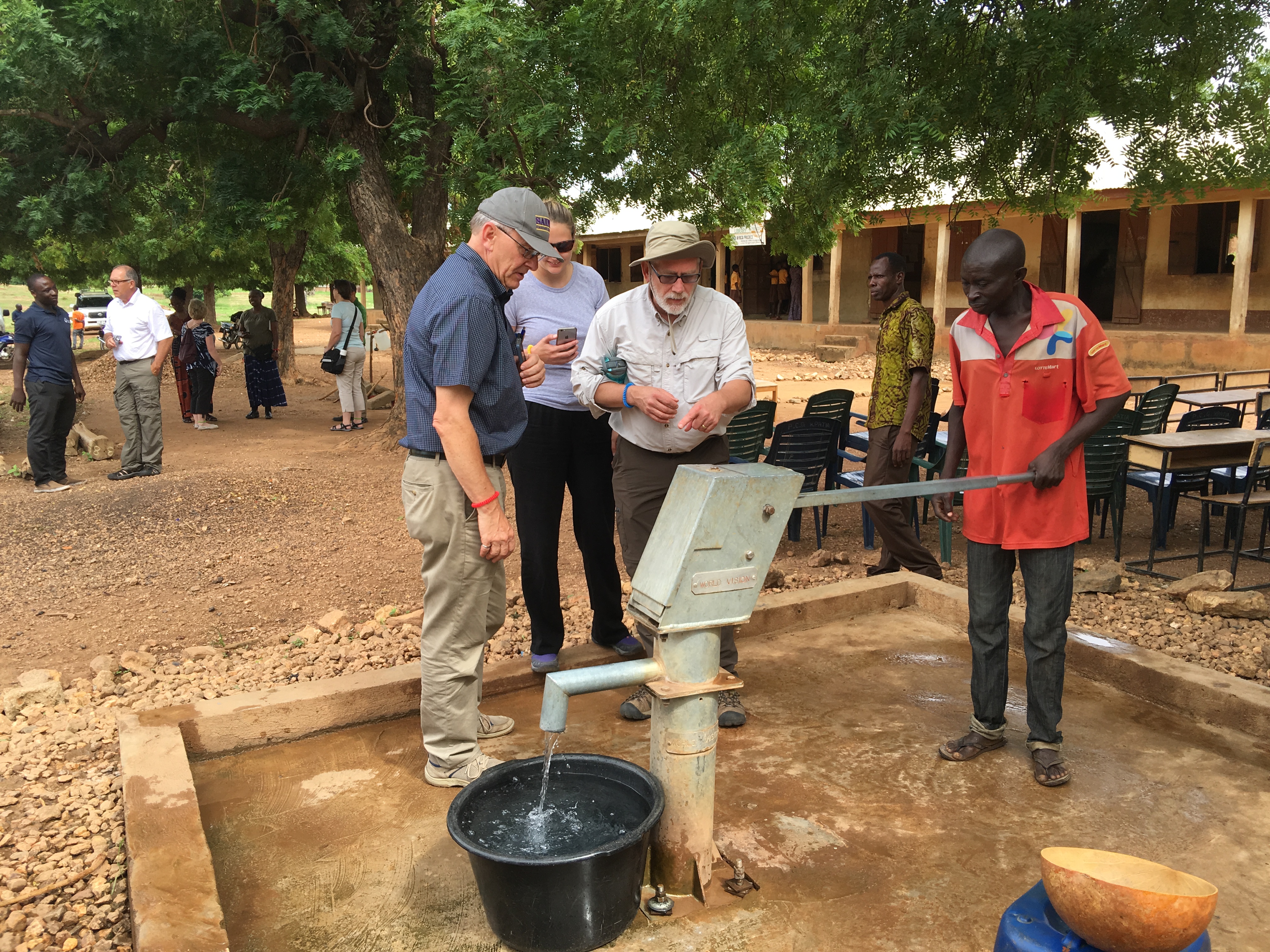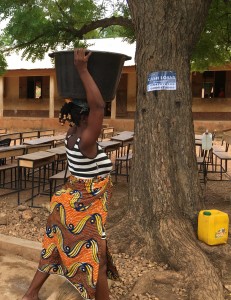Open defecation is a major challenge in poor countries, but Dr. Philip Darko, of Catholic Relief Services, glows with pride as he shows off a newly built latrine for school children in the far northern section of Ghana. He explains with glee how the vent pipe of the pit latrine was built so that flies that enter the latrine will be attracted by the light in the ceiling vent pipe, fly up, get caught, and fall to their death in the latrine’s holding tank.
For the flies to die, the pipe has to be built precisely, and when he found contractors cutting corners, he fired them. That is the kind of dedication Darko has, as 11 of us U.S. faculty members followed him around Ghana for a week. A native Ghanaian, Darko has a Ph.D. in hydrogeology, applied geophysics and environmental geology from Charles University in the Czech Republic.
When Darko saw a loose bolt on the school water pump, he met with the community water pump committee to get to the bottom of this problem. Each community has a committee that meets regularly to make sure the pump is functioning properly. We spent some time at the school pump to watch how it was used. In the picture below you can see a man filling a large open basin. I guess that it holds about eight gallons, which would be about 65 lbs. I tried to carry a five-gallon container up a steep hill in Guatemala last year. Failed! Too heavy. Yet a woman came and with the help of another person to lift it to her head, she walked away carrying the open basin on the top of her head! This is clean water.
In addition to water from a pump on top of a bore hole, rain water is captured in tanks during the rainy season. You can see the tank and the pipe from the roof in the video above.
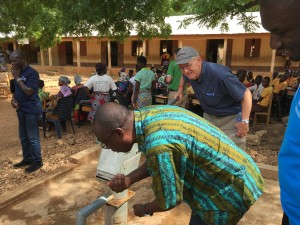
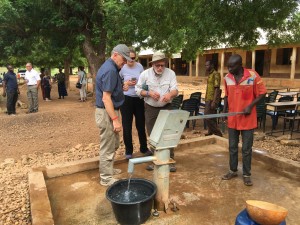
The campaign against open defecation and for hand washing is receiving major attention throughout the region. Goal 6 of the Sustainable Development Goals is to ensure availability and sustainable management of water and sanitation for all. As part of the faculty group we were fortunate to have three engineering professors who shared an interest in WASH issues: Dr. James Montgomery, associate professor of environmental science at DePaul University; Dr. Jessica Wilson, assistant professor of civil and environmental engineering at Manhattan College; and Dr. John Scharf, the Roberts-Nix Professor of engineering at Carroll College.
UNICEF’s Country Director of Water, Sanitation, and Hygiene made this startling statement: “One in five Ghanaians uses Ghana as a toilet.” It is much worse in the north where we were. At the current rate of improvement, it will take Ghana 500 years to be rid of open defecation. As many as 4,000 Ghanaian children die each year of diarrhea. According to UNICEF, one in five Ghanaians has no access to improved toilets and from 70 to 89 percent practice open defecation in the north where we were.
Stopping open defecation is not just an engineering problem; it is a problem of changing long-held human practices. “We are providing the facilities, building new toilets and all that in all communities, but at the end of the day, it is also going to depend on our own behaviour and attitude, because there are places where you have the toilets, but the people are not using it,” a government official explained.
This is why our contingent also included a psychologist, Dr. Derise Tolliver, associate professor of psychology, DePaul University School of New Learning; an industrial hygienist, Associate Professor Dr. L. Faye Grimsley, of Xavier University of New Orleans; and a public health expert, Kelly Parsley, chair, public health sciences at Carroll College.
Attitude change is difficult, according to WaterAid in a report on open defecation. But we saw that educating children in the schools about the importance of latrines and hand washing may be an important approach. This is a major thrust CRS is taking by means of private money that is funding the Integrated Sanitation, Hygiene, and Nutrition (I-SHINE) Project. I-SHINE is a comprehensive project that works to increase school attendance and retention by improving water, sanitation, and hygiene to schools, households, and communities. We saw I-SHINE in action, and from what we saw, progress is being made. We met with boys’ and girls’ health clubs, community groups managing their own water and sanitation, and teachers and district officials involved in community health.
The communities we visited are in the forefront of the effort. The cooperation of community, local governments, and CRS seems to be working, and there is no denying the passion of people like CRS’s Dr. Philip Darko to bring about important change.
Signs and other media bring home the message:

